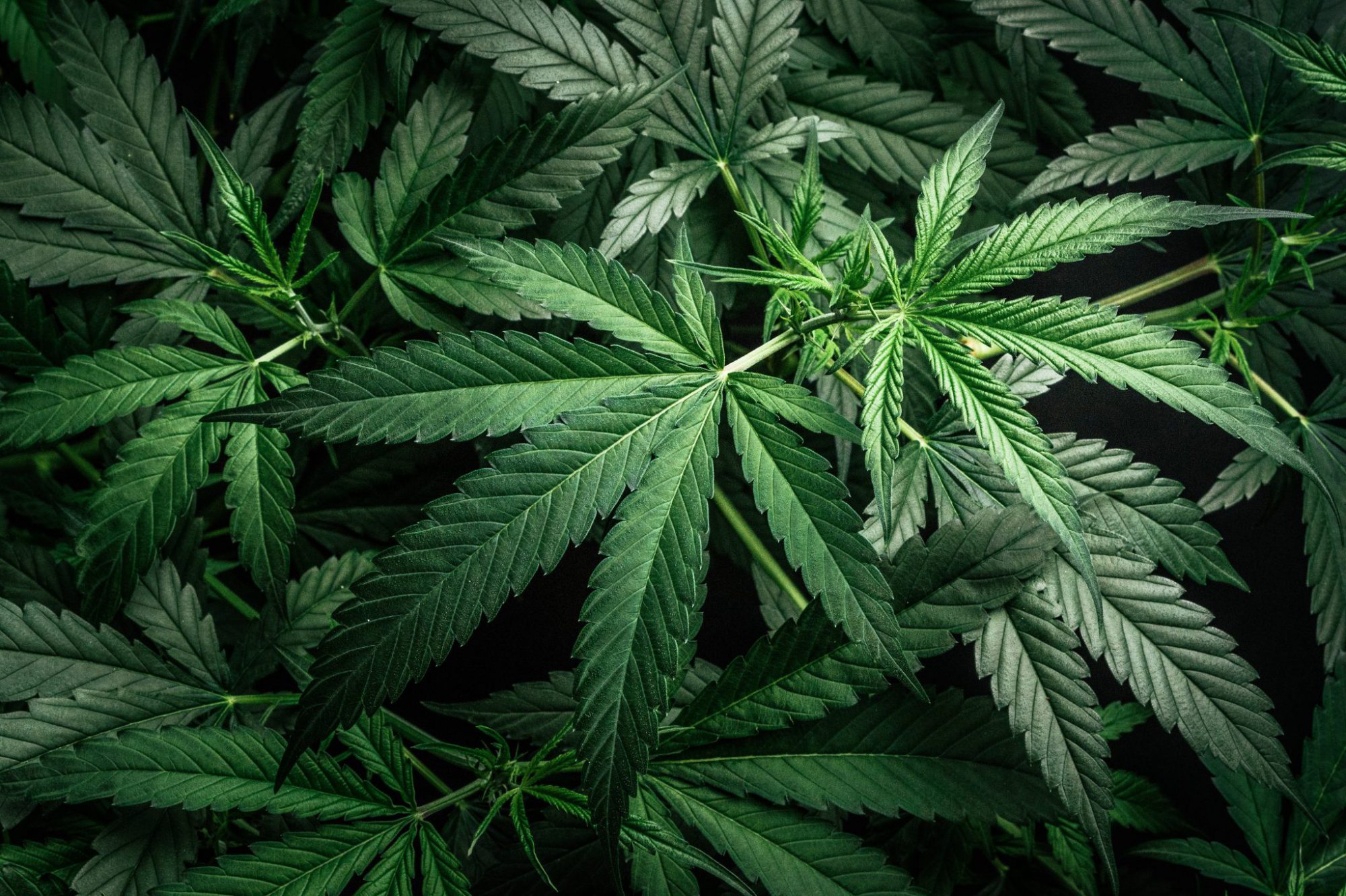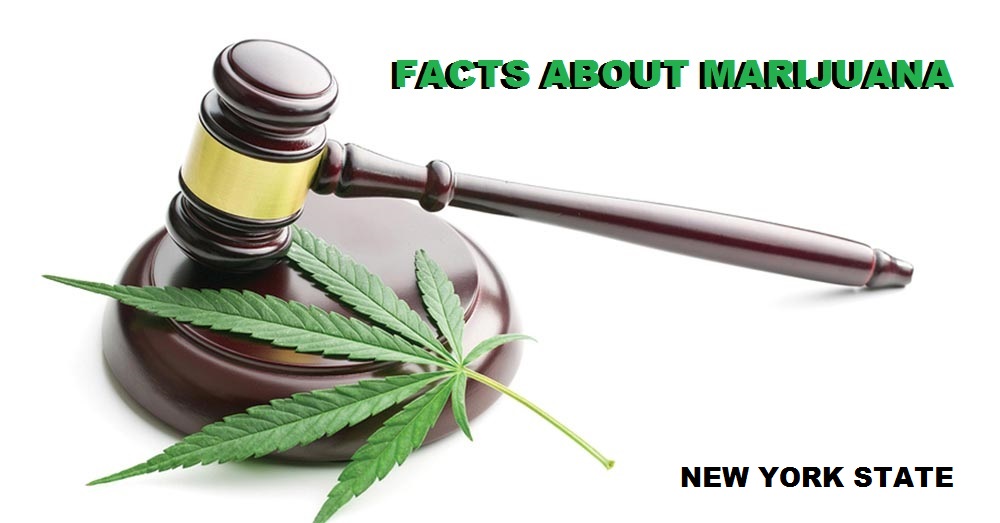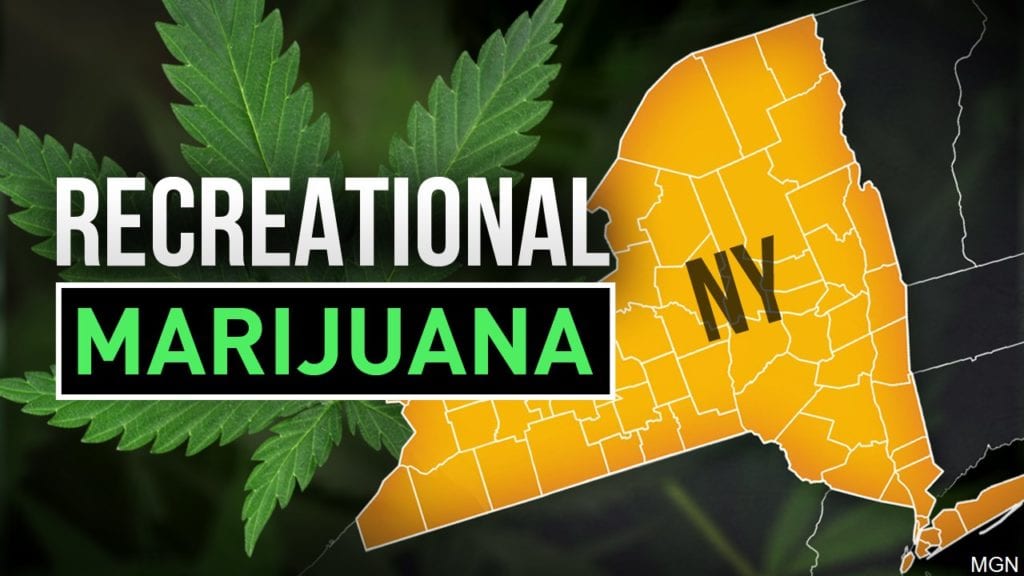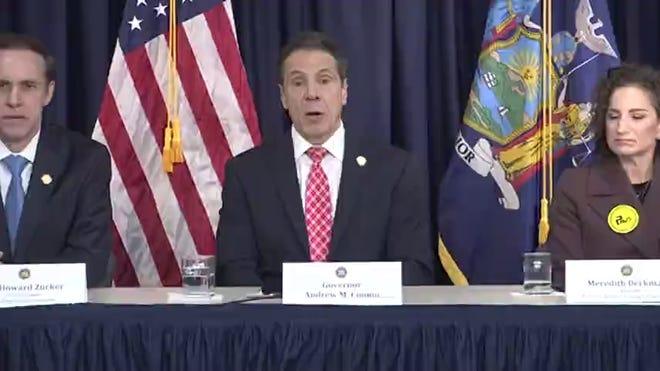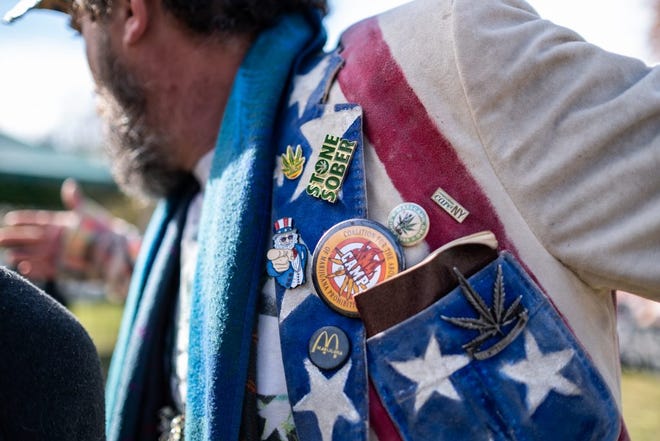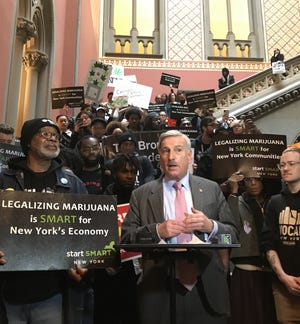Marijuana Regulations and Taxation Act
The Marijuana Regulation & Taxation Act (MRTA) was signed into law on March 31, 2021 legalizing adult-use cannabis (also known as marijuana, or recreational marijuana) in New York State. The legislation created a new Office of Cannabis Management (OCM) governed by a Cannabis Control Board to comprehensively regulate adult-use, medical, and hemp cannabis. The OCM will issue licenses and develop regulations outlining how and when business can participate in the new industry.
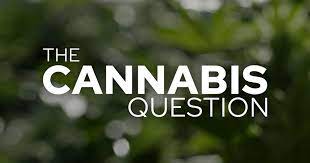
Legal Adult Use and Possession of Cannabis in New York
It is now legal for adults 21 and older to possess up to three ounces of cannabis and up to 24 grams of concentrated cannabis for personal use in New York. Adults may smoke or vape cannabis wherever smoking tobacco is allowed under the smoke-free air laws, with a few exceptions.
Cannabis use is not allowed in motor vehicles (even if they are parked) or in outdoor dining areas at restaurants. Smoking or vaping cannabis in prohibited areas may result in a civil summons and fine.
It is still against the law for people younger than 21 years old to possess, sell or use any amount of cannabis. Also, no one may legally possess more than three ounces of cannabis and 24 grams of concentrated cannabis, sell any amount without a license, or drive while under the influence or impaired by cannabis.
After legal sales begin and home cultivation begin:
- Adults will be allowed to purchase cannabis products at licensed retailers.
- Adults will be allowed to grow three cannabis plants at home. Homes with more than one adult will be allowed to grow six plants (three mature and three immature plants).
- Adults will be allowed to store up to five pounds of cannabis in their home.
- Cities and towns may have on-site consumption areas where people can use cannabis.
Medical Cannabis
Medical cannabis has been legally available to New Yorkers through the State’s medical marijuana program since 2014.
People may be eligible to use medical cannabis to treat their health condition if a state-registered health care provider certifies that medical cannabis is clinically appropriate. Patients must also register with the state to be able to purchase medical cannabis.
The new law expands the eligibility of medical cannabis, increases the number of caregivers allowed per patient, allows prescriptions for as many as 60 days (up from 30) and allows smokable cannabis to be purchased in medical cannabis dispensaries.
Once regulations are finalized, certified medical cannabis program patients will also be able to grow up to six plants at a time at home.
For more information about whether medical cannabis could help you, talk to your health care provider.
Federal Laws
Under federal law, cannabis possession and use in all forms remains illegal. There are a few FDA-approved prescription medications that contain cannabis-derived products, such as CBD, or are made with synthetic products related to cannabis.
For more information on the federal law, visit the FDA webpage on cannabis and cannabis-derived products.
Cannabis (also known as marijuana) is the second-most commonly used recreational drug in NYC, after alcohol. It can be smoked, vaped or ingested as a food or beverage (edibles), producing reactions such as a relaxed, euphoric feeling, anxiety and an increased heart rate.
The cannabis plant contains hundreds of compounds, including THC (delta-9-tetrahydrocannabinol). THC is a psychoactive compound that makes people feel high. Different forms of cannabis contain different amounts of THC and produce different effects. The more THC that a cannabis product contains, the stronger the effect.
Concentrates, such as dabs, wax and oil, may have much higher amounts of THC — 40% to 90% — than other forms of cannabis, which are usually about 20% THC. Concentrates can cause a faster, more intense effect than other forms of cannabis and may lead to an increased health risk. Cannabis added into food and beverages has a delayed and longer-lasting effect than smoked or vaped cannabis.
A person’s reaction to cannabis also may be affected by their age, height, weight, health status, medications taken, tolerance and what other food, liquids and drugs they have consumed that day.
Health Effects
The legal status of cannabis has made the study of health effects difficult. As more states legalize cannabis for adult use and medicinal use, there has been some increase in research on the benefits and risks of cannabis. However, the study of cannabis remains restricted by its classification as a Schedule I controlled substance by the federal government.
The below information is based on studies that have provided strong evidence of how cannabis can impact health. However, at this time, more information is needed to better understand the health risks and benefits of consuming cannabis.
Benefits
Cannabis has been shown to be helpful for some conditions:
- Chronic pain in adults
- Chemotherapy-induced nausea
- Multiple sclerosis spasticity symptoms
Risks
Some people may experience immediate, unwanted reactions after taking cannabis. These effects can be due to taking a type or amount of cannabis they are not used to, or to taking multiple doses in a short time.
These reactions, which typically go away after the cannabis wears off, can include:
- Temporary anxiety
- Faster heart rate
- Impaired reactions or distorted perceptions
- Temporary panic, paranoia or hallucinations
- Severe vomiting
- Respiratory problems from smoking cannabis
Research has shown links between cannabis and some health risks:
- Lower birthweight in newborns after a person smoked cannabis while pregnant
- Higher risk of motor vehicle crashes when driving while impaired
- Earlier onset of psychotic disorders for those already at risk, particularly people who start using cannabis at a younger age or use it more frequently
- More frequent respiratory symptoms, especially when the person has chronic bronchitis
- Lung injuries due to vaping cannabis
- Misuse is more likely to develop among people who start using cannabis at an earlier age or use it more frequently.
Safer Use
Here are some tips to help you use cannabis more safely:
- Avoid driving after use. It is unsafe and illegal to drive while under the influence of or impaired by any substance, including cannabis. No one drives better while high. If you drive while impaired, you are at a higher risk of dying in a crash or harming yourself and others.
- Avoid using too much cannabis too quickly. Different forms and strains of cannabis can produce different effects and some are stronger than others. Some forms and strains of cannabis can have a delayed effect. For example, edibles can take up to four hours to feel their full effects. Start with a small amount and wait until you feel its effects before deciding whether to take more. Start low and go slow.
- Avoid taking different drugs at the same time. Taking cannabis with other drugs, including alcohol, can cause unpredictable effects. If you take prescription drugs, ask your health care provider about the possible effects of taking them with cannabis.
- Avoid smoking cannabis rolled or mixed with tobacco. There is no safe amount of tobacco use or of secondhand tobacco smoke exposure for those around you.
- Talk to your health care provider about how cannabis use may affect other health issues. Cannabis may affect you differently if you have a chronic or acute health condition.
- Be wary of synthetic cannabinoids, also known as K2. They are not cannabis. The effects of synthetic cannabinoids are unpredictable and may be different than cannabis.
- Keep cannabis out of reach of minors. Children have mistakenly eaten cannabis that resembles food. If you have edibles in your home, keep them separate from other food and beverages. Keep all cannabis products in a secure place that cannot be seen or accessed by people younger than 21.
- If a child mistakenly eats anything containing cannabis, call the NYC Poison Control Center at 212-POISONS (212-764-7667).
- Cannabis Edibles Safety Card: Keep Children Safe from Cannabis (Marijuana) Products (PDF)
Other Languages: Español | Русский | 繁體中文 | 简体中文 | Kreyòl ayisyen | 한국어 | বাংলা | العربية | Français | اردو
If you need help relating to cannabis or other substance use, contact NYC Well at 1-888-NYC-WELL (1-888-692-9355).
CBD
CBD is one of the compounds of the cannabis plant and a chemical byproduct of industrial hemp. Unlike THC, CBD does not induce a high or cause impairment. People use CBD for different reasons, but there is not strong evidence of its health effects.
CBD products that have less than .03% THC are legal in the U.S. However, CBD has not been approved for use in foods and beverages by the FDA, so it is unlawful in NYC to sell food or drinks containing CBD. The Health Department may issue violations to food service establishments and retailers that offer food or drink containing CBD.
If you are a food service operator, learn more about the laws on CBD sales.
